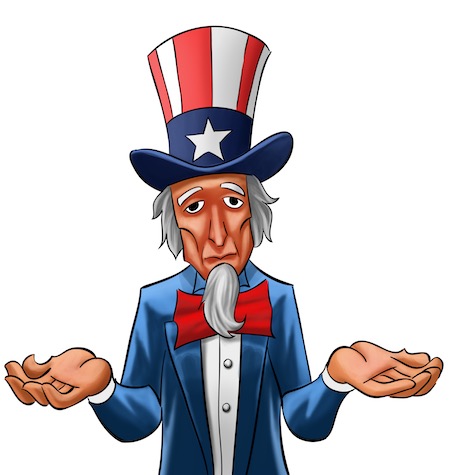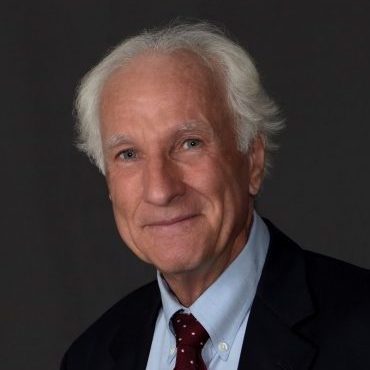“The crux of the problem is that many times it’s very difficult to find a company that can make products in the United States. But re-establishing micromanagement of our technology transfer system does nothing to change that.”
 You might think the last thing the President needs as his poll numbers are plunging is pressure to make an unforced blunder crippling U.S. innovation. Under the pretext of expanding U.S. manufacturing capability, some are pushing a provision to a pending Executive Order on manufacturing allowing the bureaucracy to micromanage our technology transfer system. That’s already happened at the Department of Energy (DOE), and the disastrous consequences are just becoming apparent.
You might think the last thing the President needs as his poll numbers are plunging is pressure to make an unforced blunder crippling U.S. innovation. Under the pretext of expanding U.S. manufacturing capability, some are pushing a provision to a pending Executive Order on manufacturing allowing the bureaucracy to micromanage our technology transfer system. That’s already happened at the Department of Energy (DOE), and the disastrous consequences are just becoming apparent.
This is being sold as a way of increasing domestic manufacturing capacity, which is rightly a priority of President Biden. But extending a flawed idea across all R&D agencies undermines the public/private R&D partnerships which restored our technological leadership—without doing a thing to broaden our manufacturing base.
What Bayh-Dole Says
The Bayh-Dole Act requires that any federally funded invention being exclusively licensed for the domestic market must be manufactured here, whenever possible. When Washington was hyping globalization as the wave of the future, that was viewed as an embarrassing nationalistic anachronism. Now it’s not nationalistic enough.
Note that, under the law, if a domestic manufacturer can’t be found, the patent owner (normally an academic institution) can ask the funding agency for a waiver to find a licensee. The agency can deny that request without appeal, so this is hardly a wimpy requirement.
Pushed Without Input
DOE says it needs to review all licenses, exclusive or not, because under Bayh-Dole important technologies are leaking out the back door. They offer no evidence supporting that claim. They also want to review changes in ownership of any company that owns or licensed a DOE-funded invention. The standard for denial is if they “run counter to national or economic security”– as determined by the bureaucracy. Efforts are underway to expand this idea to all R&D agencies under the new Executive Order.
This is being pushed without any input from the stakeholders who will be affected. No one’s bothered to consider its impact on the willingness of venture capitalists to fund startup companies that drive our economy.
We already have export control laws in place. Additionally, the Committee on Foreign Investment in the United States (CFIUS) reviews pending deals on national security grounds. A recent Wall Street Journal article shows CFIUS reviewing one right now where a U.S. startup is seeking to transfer its technology to China, which has invested heavily in the company. So why do we need every federal agency making up its own export control/ company ownership policies? You might think that such a radical change would have an extensive record justifying it, but you would be wrong.
A Somber Survey
These unprecedented changes are particularly concerning to AUTM (a global nonprofit association whose members are focused on moving academic research from the lab to the marketplace). “While we understand what DOE is trying to accomplish, we’re concerned this approach will significantly inhibit the commercialization of DOE-funded inventions,” said AUTM CEO Stephen J. Susalka.
To gauge the impact of the DOE action, AUTM polled its members – and the responses confirmed a growing suspicion. You can see full the survey here. In short, the survey found:
- Under Bayh-Dole, academic research organizations pay the costs of patenting and licensing out of their own pockets. Some 72% of respondents said it would either “definitely” or “likely” reduce their willingness to invest their resources in patenting resulting inventions. Another 24% said it would “possibly” reduce their willingness to invest the necessary funds. Thus, 96% said DOE’s action was detrimental to investing their own money in trying to commercialize resulting inventions.
- When asked if DOE’s action would “significantly affect your ability to secure a potential licensee,” 63% said it definitely would. Another 24% said it would “likely” inhibit licensing, and 13% said it was possible. Not one respondent said it would have no impact or would have a positive impact on the ability to license DOE funded inventions.
- Asked how the DOE action would “affect your local angel investors’ interest in funding a start up company” based on an invention made with DOE funds, 44% said it would “definitely” inhibit interest. Another 33% percent said it would “likely inhibit interest,” and 22% said it would “possibly” inhibit interest. Not one respondent said it would have no affect or would have a positive effect on securing venture funding.
There were also several comments, made anonymously, that are worth noting:
- “We will not be electing title to an invention that is covered by the DEC (DOE’s declaration of exceptional circumstances).”
- “Our office has completely halted all efforts to protect or to license IP that is affected by the DOE DEC.”
- “We are much less likely to elect title to any invention that this DOE DEC applies to.”
- “At our office we would decline investing in patent protection right from the start and turn inventions back directly to the government.”
- “DOE has a fundamental misunderstanding about how challenging it is to license early- stage technologies and attract investment.”
- “This is bad policy that creates more problems than it fixes. It will chill the transfer of technologies to companies who can bring to market which, ironically, will give the federal government fewer solutions for their problems.”
Imagine what would happen if the Administration expanded this policy to all agencies. Our public/private sector partnerships, which drive our economy, restored America’s technological lead, and rallied to produce critically needed vaccines and therapies to fight Covid, could collapse overnight.
Turning the Law on Its Head
DOE started inserting its new requirements in university funding agreements last fall with no explanation. After receiving a series of calls, the agency issued a background statement. When it appeared, DOE asserted that Bayh-Dole’s domestic preference provision had “been rendered largely ineffective due to these textual limitations that allow recipients to easily maneuver around it.” No evidence was presented substantiating that claim. Nevertheless, the agency invoked the “exceptional circumstances” provision of Bayh-Dole, so it could review all licenses and company ownership.
That turns the law on its head. Bayh-Dole was enacted to end Washington micromanagement of licensing. The law decentralized patent ownership to universities and small companies making inventions with government funding. The result was one of the greatest explosions of innovation in American history.
Congress intended the exceptional circumstances of the law to be exactly that—exceptional and rare. Agencies are allowed to limit university or small business patent ownership in unusual cases, like when the incentives of patent ownership aren’t necessary to bring a product to market. The Senate Judiciary Committee report—which I wrote—spells out what Congress had in mind. Examples include if an agency is developing a product to meet the needs of federal regulations, or “the agency plans to fully fund and promote” a product to the marketplace. Even so, the Senate Judiciary Committee added, “It is expected that the ‘exceptional circumstances’ exemption will be used sparingly.”
Micromanagement Won’t Create Domestic Manufacturing
Congress never contemplated broad based exemptions. However, it did anticipate that if any agency misused exceptional circumstances, it would be DOE. Aware of the agency’s antipathy to Bayh-Dole, Congress included an oversight provision requiring that agencies seeking to use the exceptional circumstances provision must receive approval from the Secretary of Commerce, who’s charged with protecting the statute. Further, exceptional circumstances can only be invoked when they “better promote the policy objectives” of Bayh-Dole. The overarching goal is the commercialization of federally funded inventions. The new DOE policy does just the opposite. As the introduction of its survey states: “AUTM believes this [DOE’s exception] will in fact dramatically inhibit the commercialization of innovations.”
Of all the agencies, DOE has the worst record of micromanagement. It bitterly fought Bayh-Dole. It then sought to exempt any technology on the export control list from the law, which was denied by the Department of Commerce. Unfortunately, now that it’s sorely needed, Commerce is missing in action. Senators Bayh and Dole must be spinning in their graves.
The crux of the problem is that many times it’s very difficult to find a company that can make products in the United States. But re-establishing micromanagement of our technology transfer system does nothing to change that.
Let’s hope the White House gets the message. There’s a lot riding on the outcome. Getting this wrong sure won’t help the President’s poll numbers.
Image rights acquired through AdobeStock.

![[IPWatchdog Logo]](https://ipwatchdog.com/wp-content/themes/IPWatchdog%20-%202023/assets/images/temp/logo-small@2x.png)

![[Advertisement]](https://ipwatchdog.com/wp-content/uploads/2024/04/Artificial-Intelligence-2024-REPLAY-sidebar-700x500-corrected.jpg)
![[Advertisement]](https://ipwatchdog.com/wp-content/uploads/2024/04/UnitedLex-May-2-2024-sidebar-700x500-1.jpg)
![[Advertisement]](https://ipwatchdog.com/wp-content/uploads/2024/04/Patent-Litigation-Masters-2024-sidebar-700x500-1.jpg)

![[Advertisement]](https://ipwatchdog.com/wp-content/uploads/2021/12/WEBINAR-336-x-280-px.png)
![[Advertisement]](https://ipwatchdog.com/wp-content/uploads/2021/12/2021-Patent-Practice-on-Demand-recorded-Feb-2021-336-x-280.jpg)
![[Advertisement]](https://ipwatchdog.com/wp-content/uploads/2021/12/Ad-4-The-Invent-Patent-System™.png)






Join the Discussion
2 comments so far.
Anon
February 16, 2022 07:25 amThe “tyranny” of those who make, wishing to overcome those who have innovated (with denigrating the protections of the innovation) are literally like wolves in sheepskins.
Yet another version of Efficient Infringers.
Anon
February 15, 2022 10:04 amIt is innate to the Liberal Left to aim for consolidation of power and authority in the State.
The ‘elitism’ of “they know better” does not care for history, or the lessons to be learned thereof.